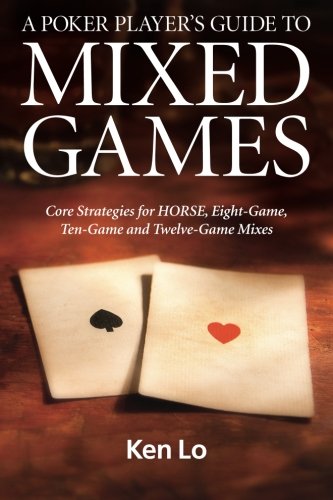Deuce to Seven Triple Draw Lowball Rules and Basic Strategy
Rules of the Game
Deuce to Seven Triple Draw is a lowball game where the best hand is 23457. Straights and flushes count against you and the aces are considered high. It is extremely popular in mixed cash games as there is always a lot of action that helps liven up the entire mix.
The game is played with blinds and the action before and after the 1st draw is at the lower limit. The rounds after the 2nd and 3rd draws are at the higher betting limit. For greater ease in reporting hands, the rounds after the 1st, 2nd, and 3rd draws are often referred to as the flop, turn, and river.
Basic Strategy
Deuce to Seven is a one winner limit game so a tight aggressive style is widely considered ideal. This means that one should always enter the pot with a raise and frequently re-raise someone that entered before you if that will significantly increase the odds of getting the pot heads-up.
Much of the play after the first draw is fairly straightforward. If you are drawing fewer cards than your opponent you have an automatic bet. It is particularly important to bet after the second draw if you have a one card draw and your opponent is drawing two. You must take a shot at winning the pot without a showdown.
When you are both drawing the same amount you should tend to bet only when you improve. When you are drawing more cards you should be check/folding or check/calling most often but when the situation is right you must not be afraid to put in a check/raise if you improve dramatically.
For example, after the second draw if you improved to an 23678 after drawing two you have an easy check-raise against an opponent that drew one. It is not because your holding is a monster in this game; it is because the vast majority of players will bet regardless of whether or not they improved. And they should be betting because when you don’t improve at all you must fold, so to balance it out you must punish them when you hit. It is also within the realm of possibility that your opponent may break a better hand which is obviously an outstanding result.
Starting Hand Standards
A reasonable set of opening requirements at most tables would be as follows:
Early position: (19.8% hands)
- Pat 8s or better
- Premium one card 7 draws (2347- 2567)
- Straight one card 7 draws (2345-2456)
- One card to draw to an 86 or an 87 with a deuce (e.g. 8643 or 8732)
- 234-267
- 238-258
Hijack: (21.6% hands)
- Early Position hands
- Any one card draw to an 87 without a straight draw (e.g. 8763)
- 268
Cut-off: (31.8% hands)
- Hijack hands
- 278
- 3457, 3467
- 347-367, 348-378
- 27
Button: (44.9% hands)
- Cut-off hands
- 345, 346, 457, 458, 467, 468
- 23-26
Further Learning
Super System 2 by Doyle Brunson (Rating 9/10) – The chapter on this game was authored by Daniel Negreanu and serves as an excellent introduction to the game. It covers the vast majority of the basic strategy and heeding the advice within will certainly make you a tough opponent as you learn the nuances of the game.
A Poker Player’s Guide to Mixed Games by Ken Lo (Rating 7/10) – This book is worthwhile for any mixed games player and there is a sizeable chapter on Deuce within the book. It also serves as a good introduction to the game but it reads too much like a textbook and is also very repetitive.


